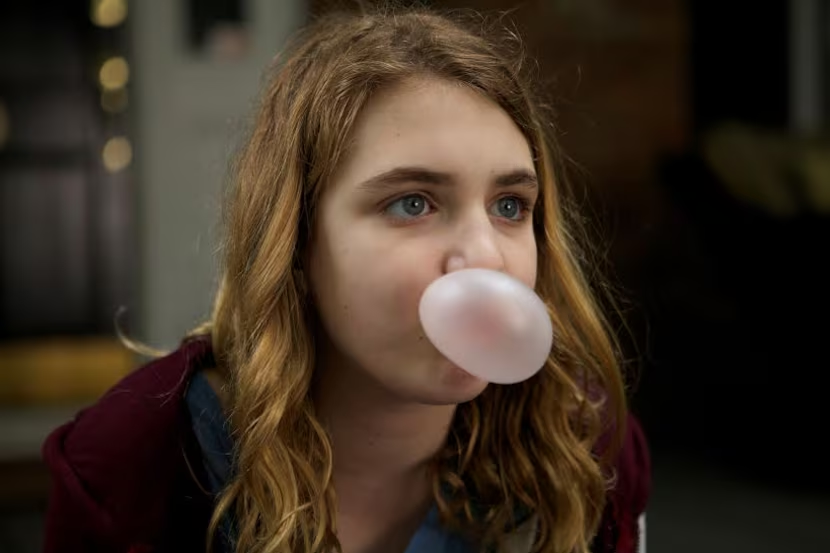We all know those sorts of endings. They’re the ones that leave us readers with dozens of open-ended questions. The last sentence that makes us shout ‘What? That’s it?!’ The kind that inspires fan-fiction. The kind that make us try to force another page of writing into existence with nothing but pure willpower. The kind of ending that doesn’t satisfy, but still resonates.
As a writer, how do you pass the same feeling of shock onto your readers? How should you end a series or stand-alone for good, without intending to complete the plot? Should you end with no hope? Should you just cut off at a random spot?
Whether you’re looking to create a happy ending or a tragic one, leaving your plot open for interpretation is a technique that can’t be taken lightly. Here to show us how to execute it correctly is Katherine Patterson’s novel The Great Gilly Hopkins.
The Great Gilly Hopkins
Gilly Hopkins is the terror of the foster-care system, and she’s proud of it. By the age of eleven, she has already gone through four foster parents in just three years. Although she’s incredibly smart, she’s also snarky, rude, and completely against brushing her hair. When she’s assigned to a new foster mother, Maime Trotter, Gilly is determined to be free of her within a few months and find a way to get back to her real mom, who has been her only stable hope of a permanent home for years now.
But Trotter isn’t like the other foster parents. She is a ‘religious fanatic’ (as Gilly puts it), who is always patient with Gilly, no matter how much she picks fights, mocks her peers, and curses. In fact, Gilly becomes smothered in affection everywhere she turns.
However, she holds onto her pride. She tries everything she can to get away – from swearing up a storm to stealing enough money to buy a bus ticket – but every attempt proves unsuccessful. One day, Gilly is so fed up that she sends a letter to her mother that slanders her current caretakers and makes her life sound much more miserable than it is.
But while Gilly waits to see what will become of her letter, the loving towns-people start to rub off on her. She realizes that maybe Trotter isn’t so crazy, and that maybe her other new-found friends really can love her. Unfortunately, just as her heart begins to change, the foster care system finds out about Gilly’s letter and whisks her away to live with her biological grandmother. She promises to fulfill everything Gilly ever wanted: a meeting with her wonderful mother who the government tore away from her all those years before. Although Gilly is ecstatic at this news, a small part of her begins to feel homesick.
Then, finally, after years of separation, her mother flies in from Chicago and Gilly goes to meet her at the airport. But when Gilly thought she’d be meeting an angel, all she really received was an ugly woman who had no interest in her at all and actually had to be bribed into their meeting.
Heartbroken and angry, Gilly turns and runs away from her mom to find a telephone booth. She calls Trotter, and when she asks where Gilly is, Gilly replies: “It doesn’t matter, I’m coming home.”
When Trotter asks what’s wrong, Gilly sobs: “It’s all wrong. Nothing turned out the way it was supposed to.”
Trotter comforts Gilly, not by telling her everything is going to be okay, but by saying:
“What do you mean ‘supposed to’? Life ain’t supposed to be nothing. Except, maybe tough… All that stuff about happy endings is a lie. The only ending in this world is death…”
”If life is so bad, how come you’re so happy?” Gilly argues.
“Did I say bad? I said it was tough. Nothing to make you happy like doing good on a tough job, now is there?”
Gilly brushes this aside by commanding Ms. Trotter to stop preaching at her. But she begins to understand why she can’t go back. Her place is with her grandmother now, and she has to learn to stick with what she’s got.
As Gilly heads back to her mother, she thinks:
“No clouds of glory, perhaps, but Trotter would be proud.”
And that’s where the story ends.
When To Leave Your Reader’s Hanging
Much to the surprise of many its readers, The Great Gilly Hopkins is a stand alone novel. This ending isn’t a clever cliff-hanger that hints at a sequel. This ending isn’t particularly tragic, nor is it entirely happy. It just ends, leaving the rest of Gilly’s adventures to the creative minds of the readers.
The question is: Why did it end like this? Katherine Paterson could’ve easily written another chapter or epilogue that told of Gilly reuniting with Trotter, or explained how she learned to love her real mother for who she was.
However, if you think about it, an extension of the story wouldn’t have been as impactful. Instead of a cozy feeling or tear-stained cheeks, the reader gets a powerful, thought-provoking line. Sure there was plenty of plot left to write, but Miss Paterson wisely chose to stop where she did, because she understood that the theme had been completed.
Once that theme is finished, once you have said what you wanted to say with your story, there isn’t much of a reason to stick around. A little extra at the end, especially if it highlights how a character has grown, is nice and at times crucial, but not always necessary.
Especially if you are writing a short story, you don’t want to stretch the theme out too far. Like a popular TV series that overstays its welcome, your theme can grow tiresome if you continue to draw it out. Instead, try ending with a swift punch to the reader’s stomach. Leave them wanting more plot, but also end on a thoughtful point for them to ponder on for days, weeks, and years to come.
The Great Gilly Hopkins resonates with its readers because it ends so suddenly. Although we all would’ve enjoyed getting to see Gilly reunite with Trotter, it wasn’t what the theme needed. The theme needed to end there to highlight how Gilly had grown. She went from gloriously defying the foster-care system to humbly making a hard decision, and any scene after that would’ve been out of place.
Resonate with your readers by ending unexpectedly. Not happily or unhappily, not randomly, but in a way that provokes thought. End with the most powerful picture of your character’s growth, state your theme, and then make your exit. Although there is a time and place for longer endings, this technique ensures a story that packs a punch. Your readers will thank you later.



Let us know in the comments:
What stories have you read that left you hanging? Did they do it well? Do you plan on cutting your story off early, too?


Hello, I’m Sophia! I’m a child of God and I (if you couldn’t tell already) love to write! I’m also a total theater kid and strong dessert (specifically cupcake) enthusiast. For as long as I can remember, I’ve enjoyed both reading and making my own stories. I’m so glad I get to share with you what I’ve learned from some of my favorite (or sometimes least favorite) stories on this blog.

